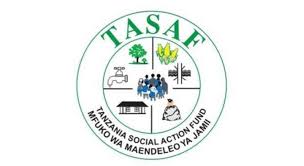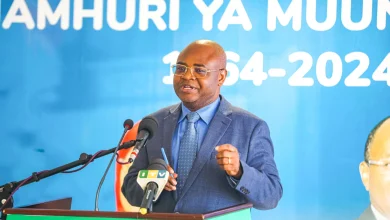Justice vital for mining sector growth

DAR ES SALAAM: THE extractive sector, which includes the mining of minerals, oil and natural gas, is one of the powerhouses for economic growth in many developing countries, including Tanzania. In Tanzania, the sector continues to be a cornerstone of the economy, contributing 10.1 per cent of the country’s GDP in 2024.
However, despite its significant contribution to the national income and employment, this sector has often faced challenges related to access to justice and accountability.
Justice in the extractive sector entails ensuring the participation of citizens in decision-making processes that affect their natural resources and the protection of both the environment and human rights.
On the other hand, accountability means transparency in contracts, the collection and use of revenues, as well as the establishment of strong monitoring and enforcement systems among all stakeholders — the government, companies and the communities.
By strengthening justice and accountability, the extractive sector can become a catalyst for sustainable development rather than a source of conflict and inequality.
Speaking at different times at the “Hoja Yako Mezani” programme organised by HakiRasilimali, stakeholders in the extractive sector stressed the need to enhance participatory systems and transparency of information to ensure that the wealth from natural resources benefits all citizens fairly and equitably.
Contributing to the discussion, Damas Parsalaw, the Principal Enquiry Officer at the Commission for Human Rights and Good Governance (CHRGG) says there is a need for stakeholders to continue working closely with the government in raising public awareness about justice and accountability issues.
He notes that the concept of justice and accountability in the extractive sector is broad, hence it is vital for all stakeholders — including government institutions, civil society organisations and the private sector — to collaborate in addressing emerging challenges.
ALSO READ: Youth must choose life, not drugs
“The challenge of human rights violations in the extractive sector requires the involvement of many stakeholders. When we engage in mining activities, we must include experts from various disciplines, not just lawyers,” Parsalaw said.
He adds that some of the disputes that arise, such as those related to environmental pollution and health impacts, cannot be resolved without the contribution of professionals such as doctors, who can verify whether certain diseases are linked to mining activities.
He further explains that when a citizen reports a complaint related to environmental pollution, resolving it requires technical expertise to scientifically confirm whether the problem originated from a particular factory or mine.
“Once the technical assessment has been conducted and a report produced, the expert opinion is what forms the basis for pursuing justice in court,” he points out.
Parsalaw’s remarks were echoed by Hussein Mvomvo, Programme Officer for Business and Human Rights Tanzania (BHRRT), who underscores the crucial role of civil society organisations in empowering citizens to understand and claim their rights.
Mr Mvomvo says that many people residing around mining areas still lack sufficient awareness of their fundamental rights, which prevents them from demanding accountability or compensation when affected by mining activities.
“Civil society organisations should empower citizens to understand their basic rights, including the means of obtaining legal remedies, so that they can claim justice when faced with the impacts of extraction,” he says.
He further urges the government to continue engaging stakeholders from all sectors in policy and legal processes concerning the extractive industry.
“Currently, the government is developing the National Critical Minerals Strategy and it is important that stakeholders’ contributions are considered, to ensure the resulting policies and frameworks benefit both citizens and the nation at large,” he added.
Mvomvo also raises concern about the practice of passing certain laws under certificates of urgency, saying that such processes often limit stakeholder participation.
“The government should provide adequate time for stakeholders to give their input before passing laws under a certificate of urgency, to avoid challenges in implementation,” Mvovo said.
Representing residents living in the extraction area of Mahenge–Ulanga in Morogoro Region, Mohamed Nguku underlines the importance of deeper community engagement in mining activities to prevent conflicts between investors and local communities.
Nguku observes that many conflicts in the extractive sector stem from the lack of sufficient awareness among community members about their rights and their role in managing surrounding resources.
“Many conflicts arise because communities lack adequate understanding of extractive issues. All stakeholders must take part in these matters to ensure that everyone benefits,” he says.





